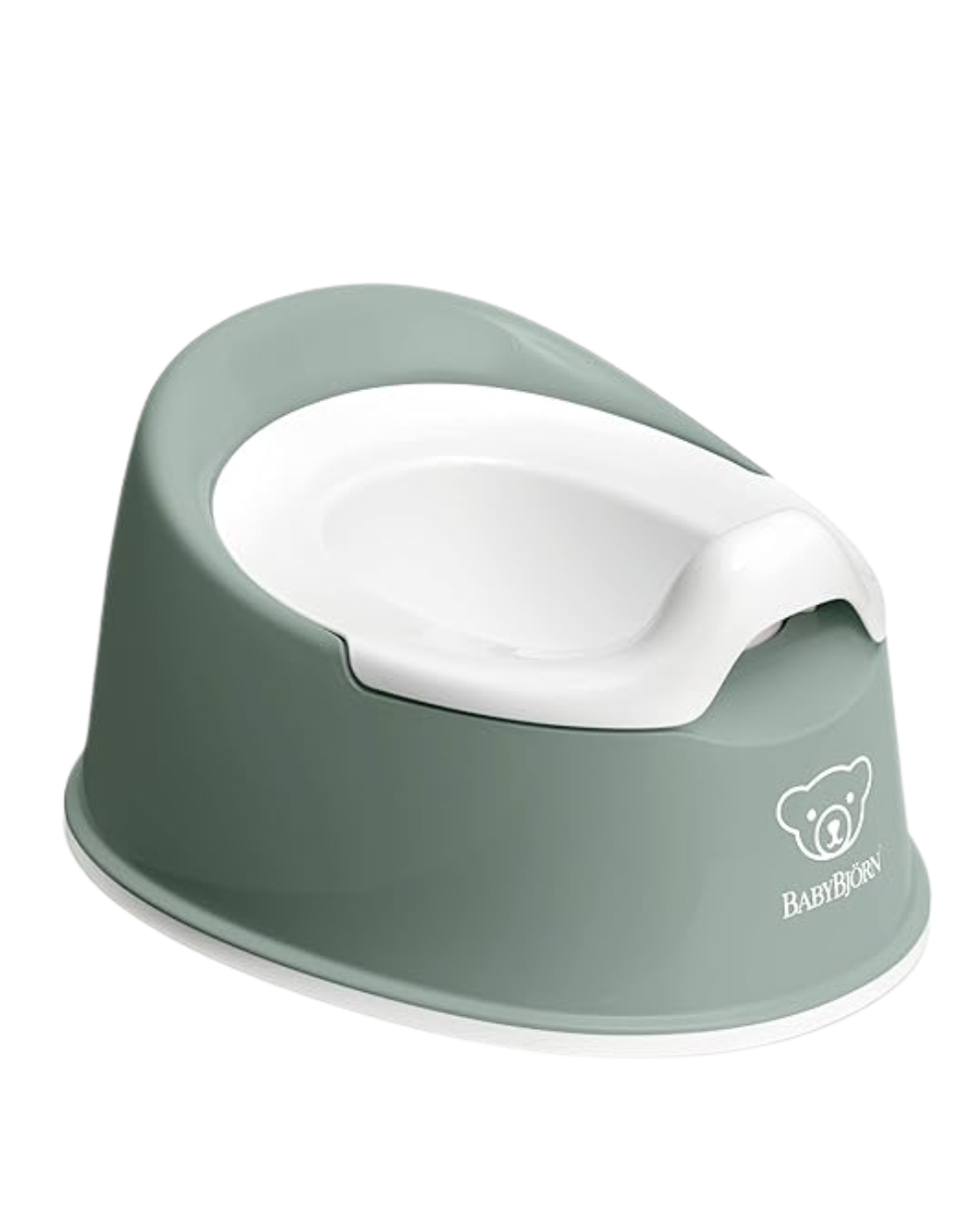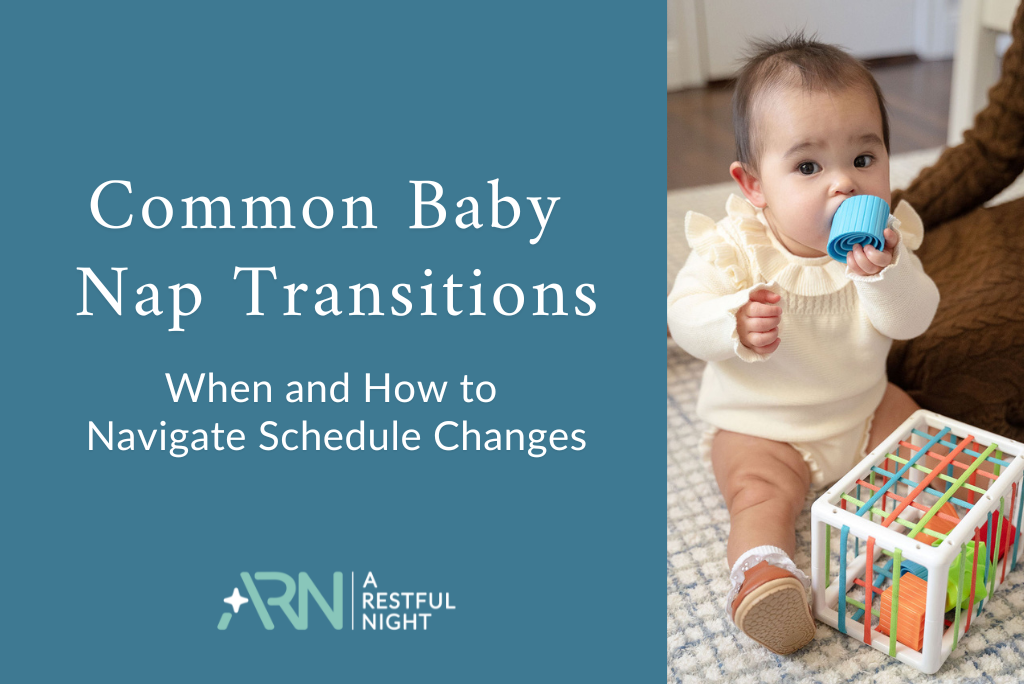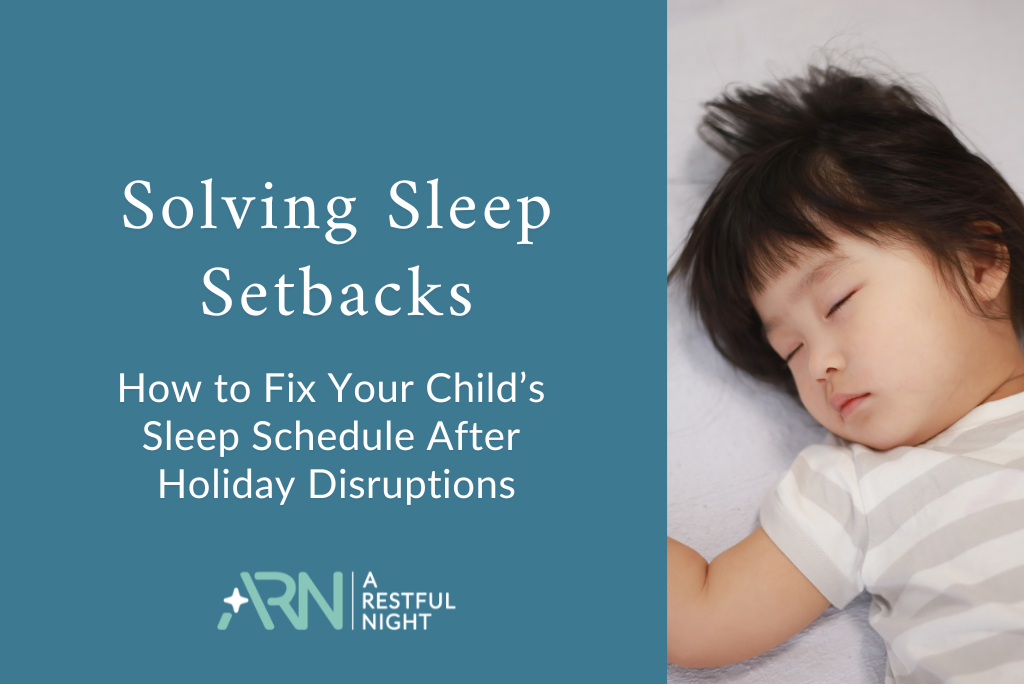Managing Sleep Disruptions When Potty Training
We’ve made it through the thick of potty training for the fourth and final time! After almost 8 years, diapers are on numbered days at my house! Am I crying tears of joy, sorrow, or both?
Potty training is one of the many parenting milestones that's equally exciting and nerve-wracking. Although it's a significant step toward your child's independence, let's face it, it’s a messy one. After all the effort you likely put into getting your child to sleep soundly through the night, throwing a wrench in your toddler’s sleep routine can feel intimidating.
Why does potty training have such a significant impact on sleep? For everyone involved, it's about the excitement, the mishaps, and the entire new routine, not just the frequent trips to the bathroom. But here's the thing: you can handle this!
With a bit of preparation, patience, and a few expert tips, you'll manage those sleep disruptions and help your little one settle into their new normal. It won't be perfect, but it'll be worth it. Ready? Let's get started!
How to Know Your Child Is Ready for Potty Training
There’s no magic age for potty training, but most parents start thinking about the transition sometime between 2 and 3 years old. The truth is, it’s less about age and more about readiness. What matters most is tuning into your child's unique cues.
Signs your child might be ready:
Staying dry for longer stretches (2+ hours) during the day
Telling you (with words or gestures) when they’ve gone or need to go
Showing interest in the bathroom or copying you using the toilet
Hiding to pee or poop - this shows awareness of the urge
Following simple instructions and sitting on a potty for a few minutes
Showing signs of impulse control (e.g., transitioning from crib to bed and choosing to stay in their room overnight)
If your child checks several of these boxes, it might be a good time to introduce potty training gently. And remember-every child is different. Trust your instincts, and let your child set the pace.
How Potty Training Impacts Sleep
Potty training changes everything for your toddler. Their growing awareness of bodily functions means they're more in tune with needing to go-even at night. This new awareness is great for progress but can shake up their toddler sleep routine in ways you might not expect.
Some common reasons for sleep disruptions during potty training include:
Increased wakeups: Your toddler might wake up more often, feeling the need to use the potty or just from the excitement of mastering a new skill.
Anxiety: Some kids feel nervous about accidents or unsure about nighttime trips to the bathroom.
Interrupted sleep cycles: These frequent wakeups can make it harder for your little one to get the deep sleep they need.
You’re not alone: Many parents notice their child waking more often during this phase. While it's a challenge, it's also temporary, and knowing why it happens is the first step to navigating it.
Can Potty Training Cause Sleep Regression?
Just like any big developmental leap, potty training can cause a temporary shift in your child’s sleep patterns. And while that might feel frustrating at the moment, it’s completely normal (and it won’t last forever).
Here’s how potty training might impact sleep:
More night wakings: Your child may wake up with the urge to go, or simply because their brain is busy processing this new skill.
Bedtime resistance: Excitement or anxiety around potty training can make it harder to wind down at night. If your child is already resistant to bedtime, using the potty can become an excuse to call for you or leave their room.
Early risings: Some kids start waking earlier, especially if they’re proud of staying dry overnight or eager to try again.
The good news? Regressions are temporary. A strong sleep foundation gives your child a reliable baseline to return to. If you stay calm, consistent, and supportive, they’ll adjust to potty training, and restful nights will return.
Preparing for Potty Training and Sleep Changes
Preparation is your best friend during potty training. The more you plan, the smoother this transition can be.
1. Choose the Right Time to Train
Potty training works best when your toddler is genuinely ready. Signs include staying dry for longer periods, showing interest in the potty, or communicating when they need to go. Timing matters, too - avoid starting during significant life changes like moving to a new house or welcoming a new sibling. A calm, stable environment makes all the difference.
I’ve used Jamie Glowacki’s 6 Step Method for all four of my kids! You can read all about it in her book Oh Crap!
2. Have Supplies at the Ready
I’m not one to tell you to invest in a pile of useless supplies. I have a list of potty training essentials waiting for you on amazon, and it’s short. Just the basics you truly need!
3. Set Expectations
Talk to your child about potty training, including the possibility of waking up at night to use the bathroom. Keep the tone upbeat and positive - this is an exciting new skill to work on together, not something to stress about.
4. Update Their Sleep Environment
A few simple changes can make potty training at night more manageable for everyone. Use nightlights to light the way from their bed to the bathroom. If the bathroom is far, consider a training potty nearby. Make sure their bed is easy to climb in and out of and has everything they need within reach.
How to Manage Nighttime Wakeups while Potty Training
Nighttime wakeups are almost inevitable during potty training, but they don't have to derail your family's sleep.
1. Limit Liquids Before Bed
Cut back on drinks 2-3 hours before bedtime to reduce the chances of nighttime potty trips. Your child can still sip water if thirsty, but keeping liquids light makes a big difference.
2. Establish a Pre-Bedtime Potty Routine
End the day with a consistent trip to the potty before bed. Make it part of their consistent bedtime routine: bath, pajamas, story, potty, bed. The repetition helps them understand what's expected and prepares them for success.
3. Stay Calm and Supportive
React patiently when your toddler wakes up and has to use the restroom. Encourage them, lead them gently to the restroom, and assist them in getting back into bed. Assure them that everything will be alright if they have an accident. They will feel more secure the more at ease you are.
4. Don’t Rush Nap & Night Training
It's okay to wear a diaper for naps or bedtime if you feel your child isn;t ready, but make sure you are prompting before bed and taking the diaper off first thing in the morning and bringing them to the potty!
Establishing a Sleep Schedule While Potty Training
Consistency is your best ally during potty training, especially when it comes to sleep. A predictable schedule gives your child a sense of stability in a time of big changes.
Tips to keep your sleep schedule on track:
Stick to regular bedtimes and wake times to help your child’s body clock stay on track.
Allow extra time at bedtime for one last potty trip. It reduces stress and the chance of stalling.
Keep your wind-down routine familiar (think: bath, books, potty, bed). Routine helps your child feel safe, even if other things are changing.
Watch for overtiredness-disrupted sleep can cause cranky days. If needed, offer a slightly earlier bedtime to catch up.
Even with some disruptions, a steady schedule helps everyone feel more rested and confident.
Dealing with Accidents, Oops!
Accidents are going to happen. It’s all part of the learning process. But how you handle them can make a big difference in your child’s confidence.
1. Protect the Mattress
Although accidents can get messy, being ready makes all the difference. Save time (and your sanity) when cleaning your mattress by using a waterproof protector. To allow for speedy handling of mishaps keep extra sheets, pajamas, and wipes close at hand.
2. Reassure Your Child
Your reactions to accidents are important. Reassure your child that they aren’t in trouble, and help them plan their next approach. Would a final trip to the potty after story time make it easier? Make this process collaborative, and let them know you’re here to support them.
3. Stay Consistent
Putting them back in diapers after a rough night might be tempting, but consistency is key. Stick with the potty training plan, even during setbacks.
FAQs:
Q: How long does potty training affect sleep?
A: Every child is different, but most fully adjust within a few weeks to a month.
Q: Should I wake my child at night to use the potty?
A: It’s best to let your child develop the bodily awareness to wake up when they need to go. Waking them proactively might prevent accidents, but it could also delay their progress long term. The exception would be if you know they had a particularly heavy amount of liquids during the day, you may wake them before you go to bed for a final potty break!
Q: What if my child refuses to go to the potty before bed?
A: Make it a fun and consistent part of their bedtime routine. Try a potty chart or small rewards to encourage them.
Q: When should I worry about bedwetting?
A: Bedwetting is expected up to age 5 or 6. If it persists, consult your paediatrician. Be mindful of the liquid intake towards the end of the day, this is the number one tip I give parents!
Potty training isn't just about learning to use the potty - it's a milestone that sets your little one down the path to independence!
You can make this transition as smooth as possible by preparing ahead, updating your routines, and staying calm through nighttime wakings and accidents. Remember, you're doing fantastic. Celebrate the wins (big and small) and give your family (and yourself) grace during the challenging moments. Uninterrupted nights are just around the corner!
Meg O'Leary is an Infant and Child Sleep Expert and the founder of A Restful Night. Based in Westchester County, NY, she leads a team of certified sleep coaches to provide virtual support to families across the US and around the world.





